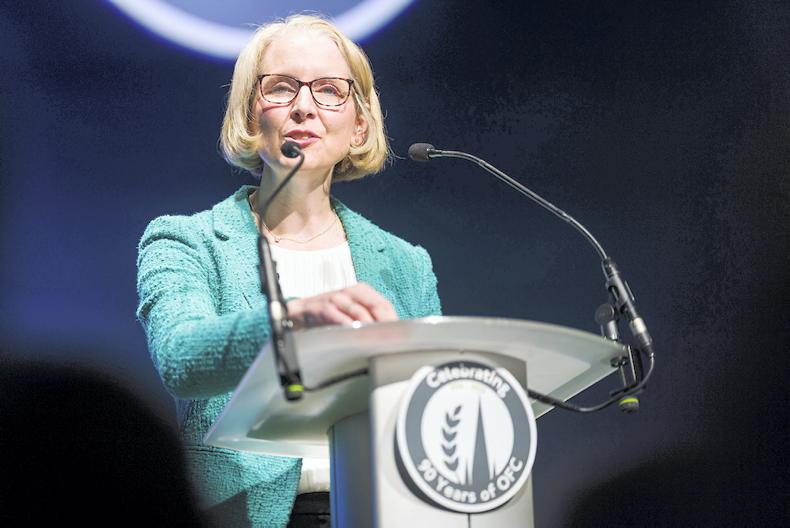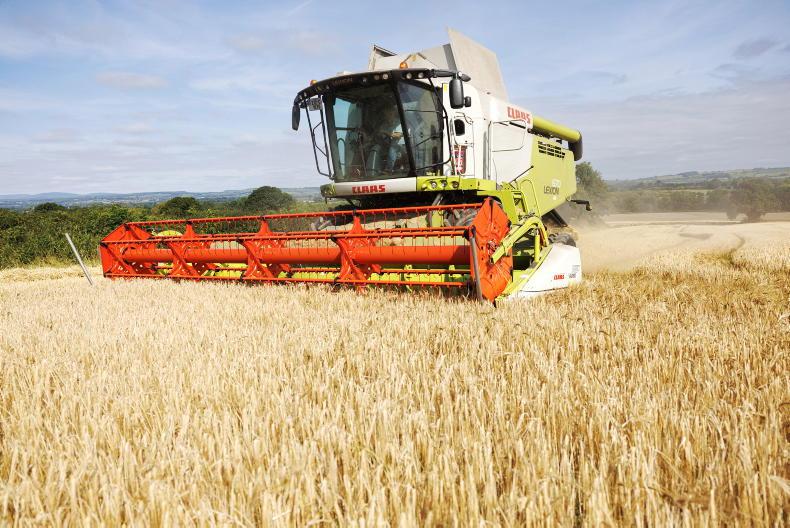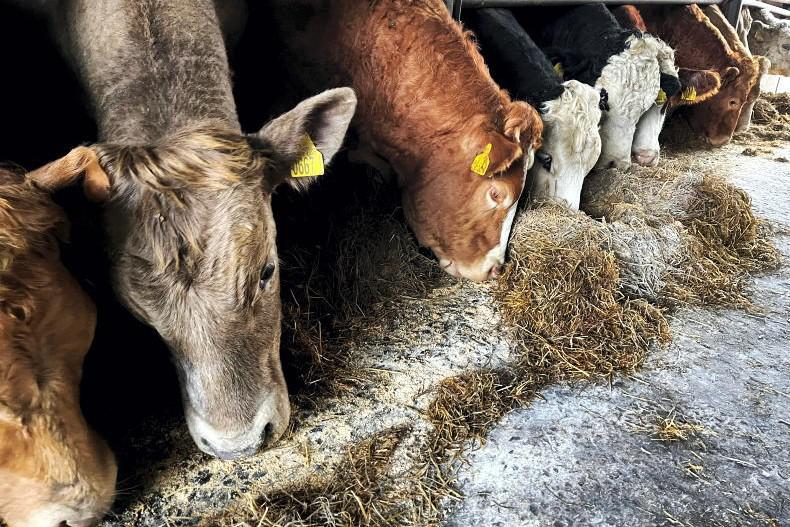The chair of the Environment, Food and Rural Affairs (EFRA) committee at Westminster, Sir Robert Goodwill, highlighted some concerns about the Environmental Land Management Scheme (ELMS) during a two-day visit to NI last week.
Speaking at the UFU president’s roadshow in Armagh on Wednesday, the Tory MP and former Defra minister, who also owns a 250ac arable farm in Yorkshire, described ELMS as “worrying”.
He pointed out that the overall budget for agriculture in England (£2.4bn) is unchanged, but to get money from ELMS, farmers will have to do additional work when compared to the BPS (such as buying seed and cultivation) that will add cost.
“They have to jump though a lot of hoops,” said Goodwill.
The current plan in England is that the ELMS will gradually replace the BPS. English farmers saw BPS money cut 5% in 2021, with payments down 20% in 2022 and due to be reduced by 35% in 2023 when compared to a 2020 base year. The last BPS money is to be paid out in 2027.
It is a different approach to that planned in NI, where DAERA has given assurances that the pace of transition away from area-based payments to new Farming With Nature schemes will depend on uptake by farmers of these agri-environment measures.
“Our department recognised that trying to push something might not work,” commented UFU president David Brown during the meeting in Armagh.
SFI
To date, only one of three planned schemes under the ELMS has been opened in England, with farmers able to participate in the Sustainable Farm Incentive (SFI) from June 2022.
It includes three measures relating to improved grassland, arable soil and moorland. But with initial payment rates as low as £11 per acre, uptake has been slow.
To make the SFI more financially attractive and help cover costs on farms, Defra announced in January 2023 a new management payment of £20/ha on the first 50ha of land entered into the scheme.
Defended
Despite voicing his concerns about ELMS, Sir Robert Goodwill defended the overall direction of travel that is shifting farm support towards the delivery of public goods, arguing that it will help ensure continued funding and support from the British taxpayer.
“As farmers, we need to get some new allies. If we can get the environment to work, it will be the likes of Greenpeace and Friends of the Earth,” he said.
Positive
He also maintained that there are many reasons to be positive about the future, despite the environmental challenges directed at the sector.
In particular, he cited work by Norwegian technology company N2, which has a base in York, and has created a system that treats livestock slurry and digestate from anerobic digestion.
The process uses electricity to add nitrogen from the air, while also locking in ammonia and methane, to create an environmentally-friendly fertiliser. The technology is currently being trialled at the Arla Foods 500-cow innovation farm near Aylesbury in England.
Food security
However, before he left Armagh, Goodwill was left in no doubt by local farmers that the UK government must not allow the continued focus on the environment to lead to lower domestic production and a higher reliance on imported food.
Read more
NI farm leaders positive about future
Key role for Ag Tech on NI farms
The chair of the Environment, Food and Rural Affairs (EFRA) committee at Westminster, Sir Robert Goodwill, highlighted some concerns about the Environmental Land Management Scheme (ELMS) during a two-day visit to NI last week.
Speaking at the UFU president’s roadshow in Armagh on Wednesday, the Tory MP and former Defra minister, who also owns a 250ac arable farm in Yorkshire, described ELMS as “worrying”.
He pointed out that the overall budget for agriculture in England (£2.4bn) is unchanged, but to get money from ELMS, farmers will have to do additional work when compared to the BPS (such as buying seed and cultivation) that will add cost.
“They have to jump though a lot of hoops,” said Goodwill.
The current plan in England is that the ELMS will gradually replace the BPS. English farmers saw BPS money cut 5% in 2021, with payments down 20% in 2022 and due to be reduced by 35% in 2023 when compared to a 2020 base year. The last BPS money is to be paid out in 2027.
It is a different approach to that planned in NI, where DAERA has given assurances that the pace of transition away from area-based payments to new Farming With Nature schemes will depend on uptake by farmers of these agri-environment measures.
“Our department recognised that trying to push something might not work,” commented UFU president David Brown during the meeting in Armagh.
SFI
To date, only one of three planned schemes under the ELMS has been opened in England, with farmers able to participate in the Sustainable Farm Incentive (SFI) from June 2022.
It includes three measures relating to improved grassland, arable soil and moorland. But with initial payment rates as low as £11 per acre, uptake has been slow.
To make the SFI more financially attractive and help cover costs on farms, Defra announced in January 2023 a new management payment of £20/ha on the first 50ha of land entered into the scheme.
Defended
Despite voicing his concerns about ELMS, Sir Robert Goodwill defended the overall direction of travel that is shifting farm support towards the delivery of public goods, arguing that it will help ensure continued funding and support from the British taxpayer.
“As farmers, we need to get some new allies. If we can get the environment to work, it will be the likes of Greenpeace and Friends of the Earth,” he said.
Positive
He also maintained that there are many reasons to be positive about the future, despite the environmental challenges directed at the sector.
In particular, he cited work by Norwegian technology company N2, which has a base in York, and has created a system that treats livestock slurry and digestate from anerobic digestion.
The process uses electricity to add nitrogen from the air, while also locking in ammonia and methane, to create an environmentally-friendly fertiliser. The technology is currently being trialled at the Arla Foods 500-cow innovation farm near Aylesbury in England.
Food security
However, before he left Armagh, Goodwill was left in no doubt by local farmers that the UK government must not allow the continued focus on the environment to lead to lower domestic production and a higher reliance on imported food.
Read more
NI farm leaders positive about future
Key role for Ag Tech on NI farms









SHARING OPTIONS